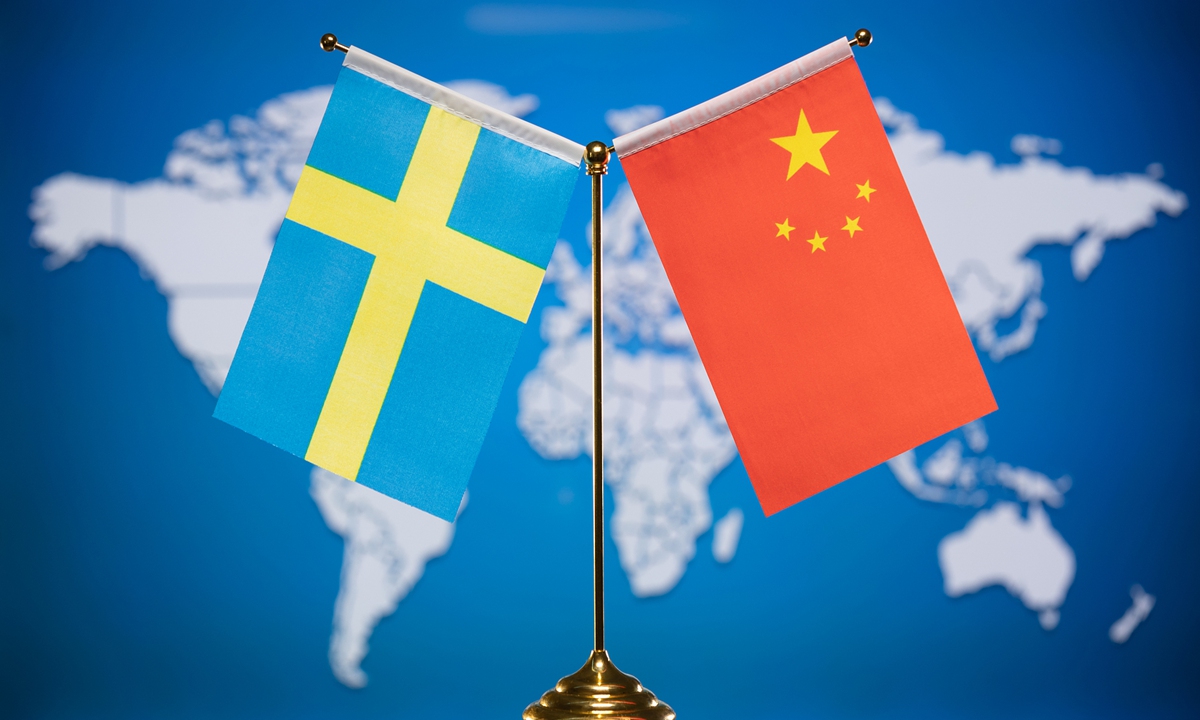Sweden's reported expelling of Chinese citizen 'politically driven, affects people-to-people exchanges'

Photo: VCG
The Chinese government has always requested Chinese citizens to comply with the laws and regulations of their country of residence, the Chinese Embassy in Sweden said on Monday local time in response to media reports about Sweden expelling a Chinese journalist, accusing her of posing a national security threat.
The journalist, a 57-year-old woman, was arrested by the Swedish security service in October and expelled by the government in Stockholm last week, the Associated Press (AP) reported on Monday, citing Swedish broadcaster SVT. She is banned from returning.
The woman arrived in Sweden some 20 years ago, held a residence permit and was married to a Swedish man, with whom she has children, according to media reports.
The Chinese Embassy in Sweden always attaches great importance to safeguarding the legitimate rights and interests of Chinese citizens in Sweden and provides consular protection and assistance to them, the embassy said.
We believe that news coverage should adopt an objective and just stance, and we oppose causing trouble by spreading rumors, oppose ideologicalization and groundless accusations and slanders against China, the embassy said, noting that none of the smears and attacks will stop China's development and progress.
"We hope the media can do more things that are conducive to the friendship between the Chinese and Swedish people and the common development of the two countries," it noted.
In recent years, the relationship between China and Sweden has been relatively cold, primarily due to influence of the broader environment, including a growing negative perception of China throughout Europe, Cui Hongjian, a professor with the Academy of Regional and Global Governance with Beijing Foreign Studies University, told the Global Times on Tuesday.
"Sweden believes that China has been consciously seeking to enhance its political influence in Europe in recent years, and its public opinion sphere, especially among the general populace, also holds many negative views toward China," Cui said, who also believed that the latest incident is clearly more politically driven.
Some media including the AP held that a series of incidents have affected the relationship between the two countries over the years, for example, the sentence of Gui Minhai, who holds Swedish citizenship, in 2020 for illegally providing information to overseas agents.
On February 24, 2020, on the charge of illegally supplying intelligence for entities outside the territory of China, the Ningbo Intermediate People's Court sentenced Gui to 10 years in jail. He was stripped of his political rights for five years.
In June 2023, the Swedish National China Center, a think tank in Sweden, released Europe's first report on the operations of Chinese language schools, claiming that most of these schools have close ties with the Communist Party of China and its affiliated organizations, including textbooks that contain narratives provided by the Chinese embassy and consulate.
Also, in its 2024 foreign policy report, Sweden described China as an "authoritarian state," criticizing the Chinese mainland's conduct toward the island of Taiwan, and also pointing the finger at China's policy in Northwest China's Xinjiang Uygur Autonomous Region.
Some experts believe that the latest incident concerning the Chinese journalist is unlikely to provoke a significant follow-up reaction, but Sweden may continue to deepen these negative factors in its public opinion toward China.
"The situation itself also reflects Sweden's strengthening of so-called vigilance against China from the official to the public level, with suspicions of expanding fabricated charges and broadening the scope of crackdowns. This could also impact the people-to-people exchanges between the two sides," Cui said.




